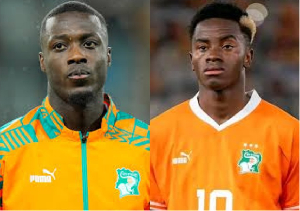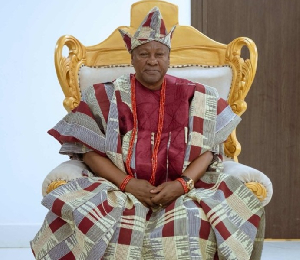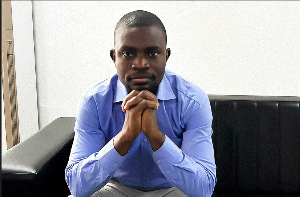Accra, Aug. 27, GNA - As UN climate talks draw to a close, WWF is applauding "an emerging group of visionary countries" for showing ways to move the debate towards the right level of focus and detail. While the mandate to agree a new global climate treaty by 2009 remains a gigantic challenge, WWF says the Accra talks show that overcoming the muddle of conflicting views and crafting an effective deal to tackle climate change is possible and depends on the political will to show leadership.
"Currently the glory in the global fight against climate change is reserved for those progressive governments which are getting the debate further down to the essentials," says Kim Carstensen, Director WWF Global Climate Initiative.
"The cumbersome talks in Accra did not stop a first group of determined negotiators from working towards a critical shift in the debate, but a success at the next climate talks in Poznan, Poland, is far from secured, and we need to see more countries engage seriously in lifting the political ambitions." According to the global conservation organisation, governments managed to push their critical discussions closer to conclusions on some key issues: strategies are shaping up to reduce CO2 emissions from the destruction of forests, and talks about financing deep emission cuts and adaptation to climate impacts gain clarity. WWF, however, notes that other tracks of the complex negotiations failed to progress in Accra and are falling dangerously behind schedule. "Smoke grenades thrown by backward parties and an overdose of procedural discussions have paralyzed the climate talks and overwhelmed negotiators for too long," says Kathrin Gutmann, Policy Coordinator WWF Global Climate Initiative.
"In Accra we start seeing the first positive examples of constructive dialogue led by innovative parties, which should become a solid trend in Poznan in December." Accra also confirmed trends already observed at previous talks: the EU is losing its role as a climate leader to a range of developing countries and creative players like Norway and Switzerland. By improving old proposals or fleshing out new ones, these countries are becoming reliable agents of progress. Together with big emerging economies they form the new engine of the talks, highlighted by South Korea's pledge in Accra to set emission reduction targets and boost renewable energies. "The EU disappointed in Accra just like it disappointed at previous talks in Bonn, expressing regret for coming to the negotiation table with empty hands," says Diane McFadzien, Programme Coordinator WWF Global Climate Initiative.
"Poznan should be a home match for the Europeans and a perfect opportunity to live up to their full potential - in order to avoid matching Canada, Russia, Japan, Australia and the US in their lack of ambition." 27 Aug. 08
General News of Wednesday, 27 August 2008
Source: GNA












